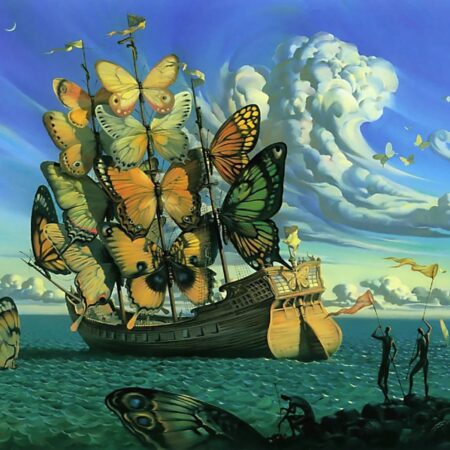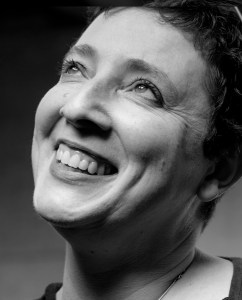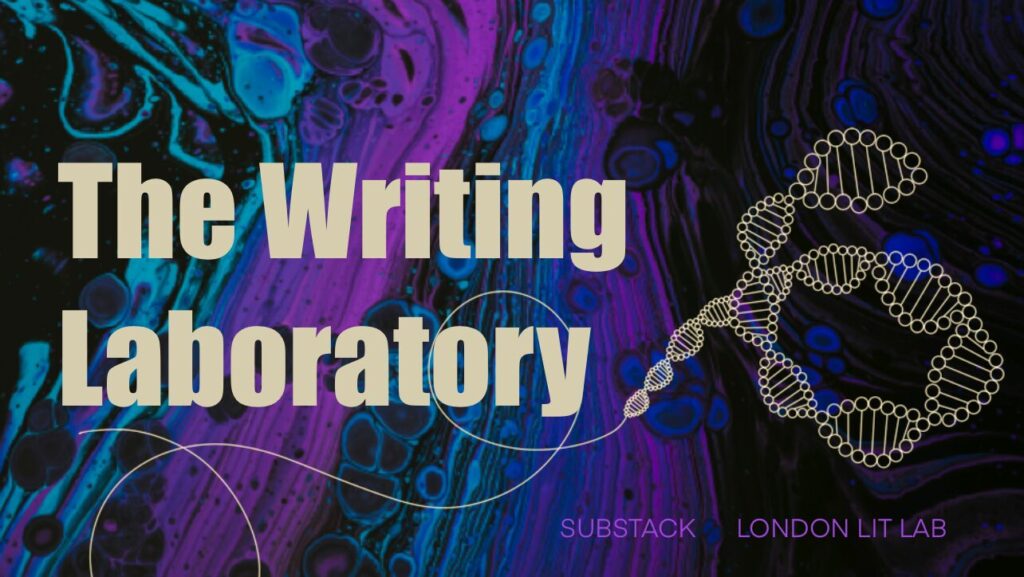What does hybrid writing mean? Are you looking for definitions, for labels? Sorry, we have none of those here. Here, “hybrid” means uncategorizable. Here, “hybrid” means possibility, potential, mixing it up, collision, combination. Perhaps you’ve written something and you’ve been wondering what it is. Is it a short story? A poem? Some sort of essay, perhaps? Let go of needing to know and let’s get hybrid.
“Hybrid” might refer to the form of the final piece, the process of creating it, or the content – or all three. Hybrid writing isn’t a genre, it doesn’t have its own “rules” or traditions.
We will be looking at some well-known hybrid forms before stepping right out of our comfortable enclosures. There is the prose poem, that slippery creature that dances in the space between prose and poetry, never stopping long enough to settle. How about the lyric essay, which takes the essay and jazzes it up with poetry’s tools? And then there’s autofiction, the blending – sometimes seamless, sometimes not – of autobiography and the elements of the imagined, the made-up. We will be starting here, reading examples of these and writing our own before striding further out, colliding genres, playing with mash-ups, and taking the concept of “hybrid” in science and nature – even within our own bodies – as inspiration. Be warned: we will be sitting in zones of uncertainty, in the blurriest of places, where there are no guardrails; we create our own. Bring yourselves, all of them, and let’s experiment.
Course Outline
- Three assignments, including reading material, discussion prompts and writing exercises
- Six sets of peer feedback on your work (two for each assignment)
- Detailed written feedback from the course tutor on a final submission of up to 1,000 words
- Author Q&A with Tania Hershman
- An online writing community, lasting beyond the end of the course
This course is eight weeks long and asynchronous (so you can log in and add to the discussion whenever you want) with weekly ‘windows’ of when you should read assignments, upload your work or offer and receive feedback. Your course tutor, Tania Hershman, will upload a new assignment every two weeks for the first six weeks. This will include texts to read and discuss, teaching from Tania, and writing assignments. You will have a week to write each assignment and to upload it to the group. The group then has a week to give feedback on at least two other participants’ work – which is an integral part of the course, learning from close reading and commenting on others’ work. In the final fortnight of the course, you will have the opportunity to submit a longer piece and receive written feedback from Tania.
Course Content
Across the three assignments, we will move from the more charted hybrid territories into uncharted waters, from reading and writing known hybrid forms to creating our own, finding the unique and wonderful ways we want to tell our stories. We will be using many different sources of inspiration, too, finding new and fertile methods for unlocking our imaginations and giving ourselves permission to try anything and everything.
Learning Online
The course will take place online, in a closed group on a platform called Slack. You’ll need to have internet access, but not at any set times – you can pick and choose when you log in. Slack is easy to use, and we’ll provide you with full instructions and guidance before the course starts. On Slack, we won’t have scheduled live chats (except the author Q&A), but there will be plenty of opportunity to interact with Tania and the other course participants in discussion threads, throughout the eight weeks.
Time Commitment
You should allow up to 5 hours per week for this course, for reading, writing and giving feedback to others.



